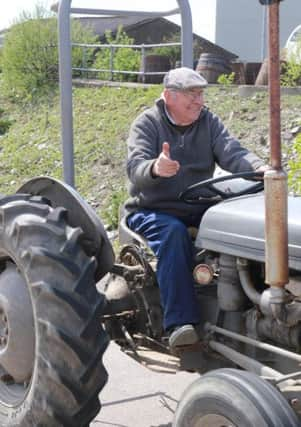Furrowed brows over Brexit and rural policy


Ever since the vote, Scottish Land & Estates has been working with our sister organisation in England and Wales – the CLA – to examine where rural policy should be going. While we remained neutral on the EU vote, Scottish Land & Estates is keen that we now take the opportunity to establish a world-leading food, farming and environmental policy and in a series of recent briefings we have examined the issues of direct support, trade, regulation and labour.
Some of the lines of the debate are already becoming clear. In the context of large amounts of public money going to support farming at the same time as there are ongoing concerns about declining biodiversity, climate change and flooding, the focus of early debate has been on how we should spend public money. The question is not so much about whether or not we will need to direct public funds towards rural areas, it is more about the best way to support farming while enhancing the outcomes delivered from using public money in this way.
Advertisement
Hide AdAdvertisement
Hide AdEarly contributions to this debate have come from the National Trust and the Campaign to Protect Rural England with the focus very much on the opportunity that Brexit represents to reform farming support. Instead of the lion’s share of the farm support budget going direct to farmers simply as a payment to support their businesses, these organisations want to see a shift so that public money is more focused on delivering environmental benefits. Farmers would receive support in a way that is linked to their activity that seeks to enhance wildlife or mitigate flooding or enhance soil fertility and so on. Since farmers can sell their produce on the market, the argument is that public money should only pay for the delivery of public goods.
It will be tempting to frame this looming debate about the future of the countryside as one in which the progressive environmental lobby is pitted against the defensive farm and landowner lobby that are seeking to retain the status quo. So let’s be clear, Scottish Land & Estates will not be simply defending the status quo. We have a great deal of sympathy with the arguments for reform—the current CAP is far from perfect—and we see a great deal of merit in the argument that public money should be used to support the delivery of public goods.
There will be a need to continue to support farming and wider land management in the future, but it is important that public investment in this area is robustly defendable. Focusing on what farmers and land managers are delivering to society is useful way forward.
The reality is that while it is extremely important that we retain vibrant farming and forestry industries producing food and wood products, the public also want many other things from the land. They want solutions to climate change and to flooding, they want good quality bathing water when they go to the beach, and to see a whole range of wildlife in the countryside. The members of Scottish Land & Estates can help deliver these things.
Moving in the direction of focusing rural support more on the delivery of public goods won’t, however, be easy. The devil will be in the detail and so Scottish Land & Estates will not simply be an advocate for radical reform. Balance will always be required. It will be important that we don’t change our support structures in such a way that undermines farming, especially in more marginal areas: we need farmers to keep farming, to be there to manage the countryside to deliver the outcomes we want to see. But there is scope for positive change and Scottish Land & Estates will be making the case for a more robust and accountable Food, Farming and Environment policy that delivers for farming and forestry, but most importantly, for society as a whole.
Andrew Midgley, Projects and Research Manager at Scottish Land & Estates, www.scottishlandandestates.co.uk